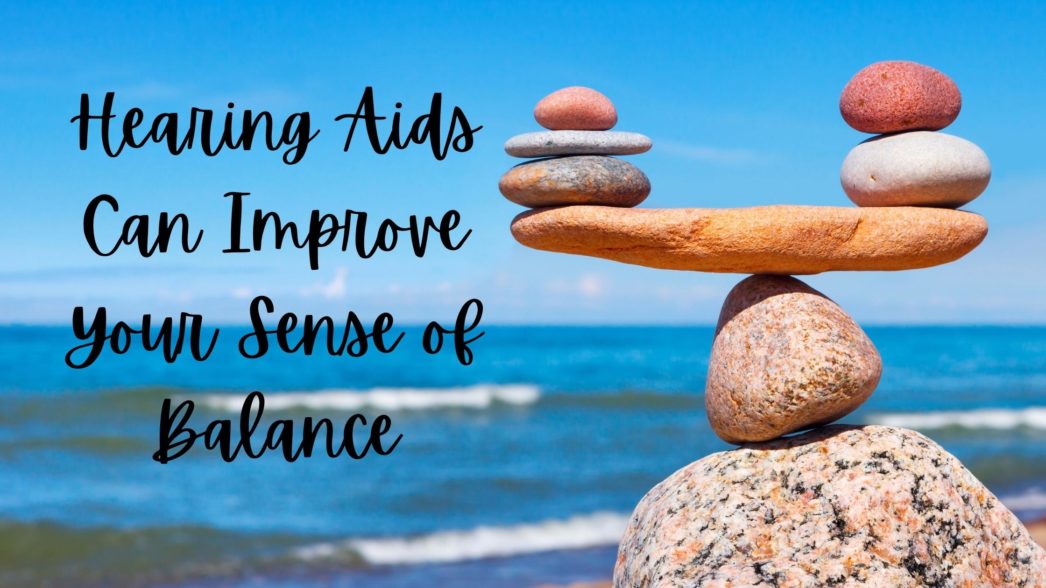If you are living with untreated hearing loss, it’s important to understand that it can affect more than your ears. Hearing loss hinders communication and this can have serious impacts on emotional health, such as chronic depression, anxiety and insomnia. Unfortunately, hearing loss is irreversible, but the good news is that hearing aids can help. By amplifying the sounds and tones you struggle with, these tiny devices can start to heal emotional issues caused by hearing loss. If you were struggling to follow and participate in conversation, with the use of hearing aids worn regularly, you should be able to join in again. However, the benefits do not stop there.
Your Balance System
Aside from struggling to hear and communicate, your ears have another important function that you rely on for health and safety. Your ears also communicate your position to your brain. This means that your brain can report if your head is tilted, or upright; whether you are laying down, jumping or standing. the vestibular system is found inside the inner ear and is responsible for maintaining balance. It consists of three semicircular canals and two otolith organs, known as the utricle and the saccule. Each of the semicircular canals end in a space, called ampullae, that contain small hair cells. When we turn our head, the inner ear turns along with it. The sensory hair cells in the ear are bent by the fluid as it moves with the gravity of our head’s position. These hair cells have a direct line to the brain concerning the position of our head and helping us to maintain balance.
Hearing Loss and Balance Issues
These tiny hair cells that help us stay balanced are very similar to the ones which report audio signals to our brain. When these hair cells, called stereocilia, are exposed to loud noise, head impact, certain medications or more they can easily become damaged or destroyed. There are many, but the more that become damaged, the more difficult it is to hear and stay balanced. A 2001 study of 235 Israeli soldiers found that repeated exposure to loud noise can damage not only hearing, but the part of the inner ear that controls balance. The study determined that the problem could be especially acute for people whose hearing was damaged more on one side than the other.
Hearing Loss and Hospitalization
The issue with hearing loss is that it does not only affect people’s emotional health but physical health as well. A recent study done by Johns Hopkins School of Medicine and the National Institute of Aging found that hearing loss significantly increases the risk of falls, especially for an aging demographic. The Centers for Disease Control and Prevention (CDC) reports that over 1 in 4 people over 65 fall each year and these falls often result in emergency room visits, broken bones, traumatic brain injuries, hospitalizations or even death. The Johns Hopkins study found that a mild hearing loss increased the risk of falling by three times and every additional 10-decibels of hearing loss increased the chances of falling by 1.4 fold.
The Risk of Falls
One reason that people with hearing loss fall more often could be that they have less spatial and environmental awareness. Often, we don’t realize how much we rely on sound clues like a fast approaching vehicle or the jingle of a dog collar as clues to help us move out of the way or avoid a potential catastrophe. Many researchers suggest that hearing loss can also cause cognitive overload which can hinder balance. In other words, people are forced to use more cognitive ability to hear, leaving less focus on your relation in a space.
Hearing Aids and Better Balance
The beauty of hearing aids is that they amplify the specific sounds you struggle with. This means that you will be able to be more alert and aware in your environment. You will also spend less time trying to decipher what people are saying which will allow more time devoted to focusing on balance. If you are interested in trying hearing aids, the first step is to schedule a hearing test with us. We can identify your hearing issue and find the best solution for your hearing and balance needs.


